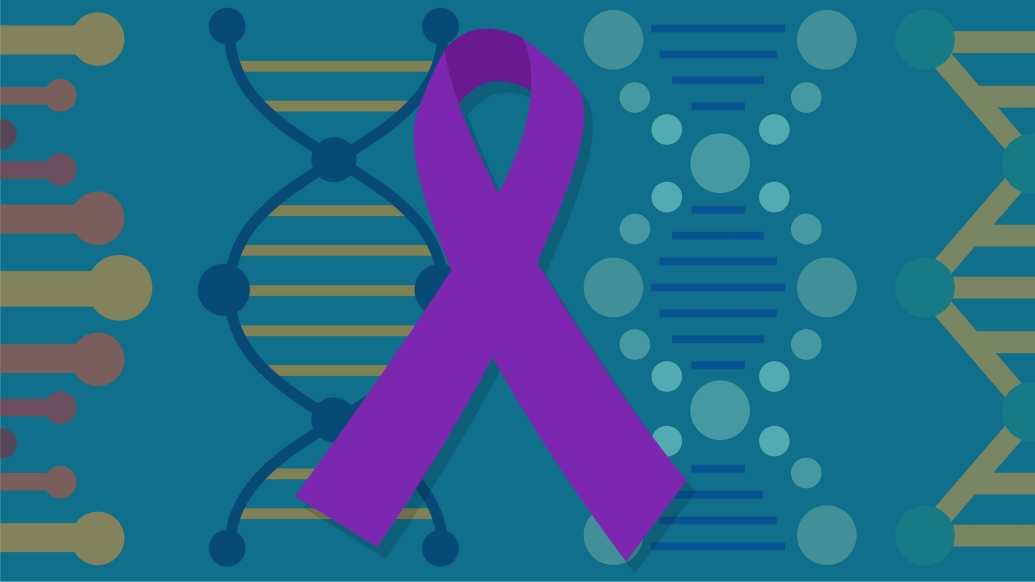The genetic test Angelina Jolie helped make famous isn’t just for women. Certain at-risk men should consider it, too.
1:00 PM
Author |

In 2013, actress Angelina Jolie brought genetic testing for hereditary breast and ovarian cancer syndrome (HBOC) into the limelight by announcing that she had preventive surgery to remove her breasts. Last year, she announced another surgery to remove her ovaries and fallopian tubes.
SEE ALSO: Men with Prostate Cancer Should Have Genetic Testing, Study Says
Guiding her decision was a blood test that showed she was at increased risk of developing breast and ovarian cancer.
These declarations, which received wide media coverage, spurred many women to examine their family histories and their own cancer risks more closely, prompting some to seek genetic counseling.
However, discussion of the impact on men and their families has been largely absent, even though the condition affects both genders.
An inherited cancer syndrome, HBOC causes an increased risk of certain types of cancers — including ovarian cancer in women, prostate cancer in men, and breast and pancreatic cancer and melanoma in both genders.
HBOC is caused by mutations, or alterations, in the BRCA1 and BRCA2 genes. Such mutations are present in about 1 in 400 to 1 in 800 individuals, regardless of gender, and are more common in people of Ashkenazi Jewish descent (about 1 in 40).
Here are some common questions men might have about the need for and mechanics of such testing:
Which men should consider genetic testing for BRCA1 and BRCA2?
-
Those with personal or family history of male breast cancer
-
Those with personal or family history of at least two men with aggressive prostate cancers (Gleason score of 7 or greater)
-
Men with a family history of ovarian cancer; a female relative who developed breast cancer at a young age (earlier than 50) or developed multiple primary breast cancers; or three or more female relatives with breast cancer at any age
-
Men of Ashkenazi Jewish descent and personal or family history of breast, ovarian, or pancreatic cancers, aggressive prostate cancer, or melanoma
-
Those with known family history of a BRCA1 or BRCA2 mutation
How does genetic testing work?
At a genetic counseling appointment, a counselor and physician will collect family and personal history information from you to determine whether genetic testing may be a good option. If indicated, genetic testing is done via blood test.
What does it mean to have a BRCA1 or BRCA2 mutation?
Having a mutation in one of these genes does not mean a person will definitely develop cancer over his or her lifetime.
SEE ALSO: With Radiation Therapy, It Pays to Stay on Schedule
However, it does indicate an increased risk of cancer. Your health care team may recommend enhanced screening or prophylactic surgery. You can discuss this risk and options for management with a genetic counselor or a qualified physician.
Can men transmit this condition to their daughters?
Yes. Contrary to conventional thinking, each child of a man who has a BRCA1 or BRCA2 mutation has a 50 percent risk of carrying the same mutation, even if the man never develops cancer.
Regardless of whether you think you might change your own medical management based on these results, genetic testing can provide helpful information for relatives who may be at increased risk.
If your personal or family history is consistent with any of the above and you are interested in making an appointment for genetic counseling, the National Society of Genetic Counselors maintains a searchable database to help locate services in your area.

Explore a variety of healthcare news & stories by visiting the Health Lab home page for more articles.

Department of Communication at Michigan Medicine
Want top health & research news weekly? Sign up for Health Lab’s newsletters today!





